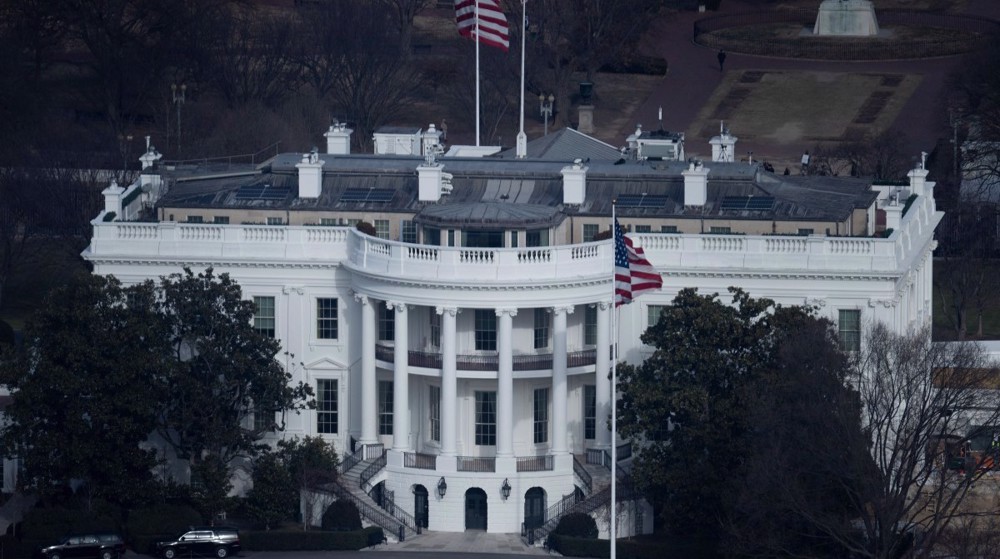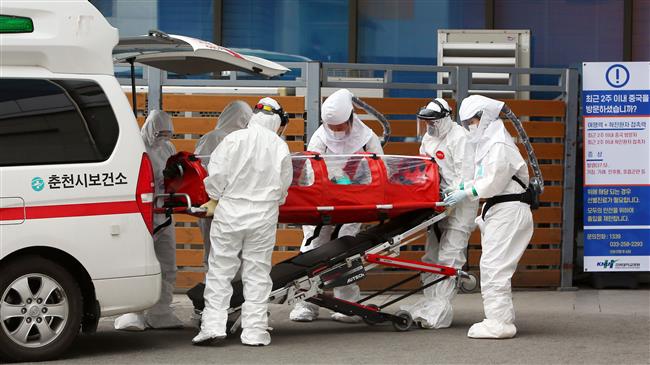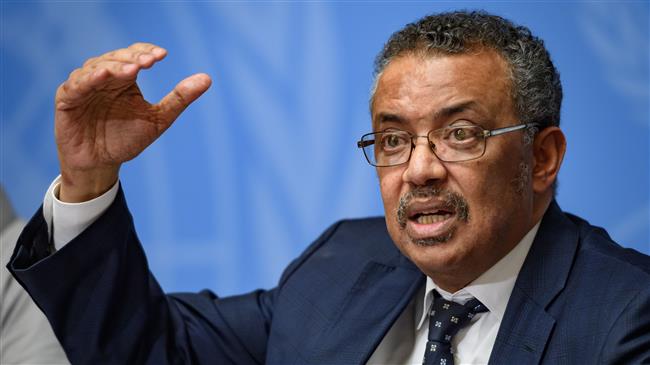World must prepare for ‘potential pandemic’: WHO chief
The World Health Organization chief says the world should be working harder to contain the spread of the deadly new coronavirus, and should be preparing for a "potential pandemic."
Tedros Adhanom Ghebreyesus, WHO director general, told a news conference in Geneva on Monday that "using the word pandemic does not fit the facts," adding, "We must focus on containment while preparing for a potential pandemic."
"For the moment we are not witnessing the uncontained global spread of this virus and we are not witnessing large-scale deaths," Tedros said.
He added, however, that countries should be doing everything they can to prepare for a potential pandemic.
"What we see are epidemics in different parts of the world affecting countries in different ways and requiring a tailored response," he said.
"The sudden increase of cases in Italy, the Islamic Republic of Iran and the Republic of Korea are deeply concerning," Tedros said.
Michael Ryan, head of WHO's health emergencies program, said a WHO team had arrived in Italy on Monday and another was expected in Iran on Tuesday.
Ryan also cautioned over the apparent high mortality rate in Iran, saying that "we may only be detecting severe cases" and not mild infections at the start of the outbreak.
Earlier in the day, WHO warned that the new coronavirus might be around for months but said the measures China implemented have prevented the infections of hundreds of thousands of people.
Bruce Aylward, leader of a joint WHO-China mission of experts, said the world can learn from the nation's approach to restraining the virus.
"The single biggest lesson is speed. Speed is everything and what worries me most is, has the rest of the world learned the lesson of speed?" Aylward said at a press conference presenting the mission's findings.
"We have outbreaks in multiple countries right now, increasing at exponential growth rates," he said.
China has quarantined the central city of Wuhan and other cities in Hubei province for a month while also imposing drastic restrictions on movement in other parts of the country.
The epidemic has killed nearly 2,600 people and infected some 77,000 people in China, with new cases and fatalities emerging in Europe, the Middle East and Asia in recent days.
Aylward said Beijing's "bold approach" had "changed the course" of the epidemic, adding that the measures have "probably prevented... hundreds of thousands of cases of COVID-19 here in China."
The number of cases of infection in the country has been generally declining over recent weeks -- although questions have been raised about the credibility of official data as the local authorities have changed their reporting method and revised figures several times.
Aylward said that although there have been "challenges with the statistics that have come out of China sometimes," he believed the "trends have been incredibly clear."
He called on China to start lifting some of the restrictions, including travel curbs and tourism shutdowns.
"Obviously they want to get society back to a more normal semblance of what probably is the new normal, because this virus may be around... for months," he said.
However, National Health Commission official Liang Wannian warned that the situation in Wuhan was still "grim."
Aylward praised China's success so far in containing the virus but maintained that the main risk for any government was being too complacent.
"Thinking you've beaten this virus is the single biggest risk," he said.
"As we dug into and came to understand the knowledge, the tools, the capacities they had built in China, it's again our conclusion that this was the right thing to be doing," he said.
The spread of COVID-19 in other parts of the world has accelerated over the past week, with Iran, South Korea and Italy emerging as the worst new hotspots.
Deaths were reported in each of those countries on Monday, while Afghanistan, Bahrain and Kuwait also announced their first cases of the virus.
(Source: Agencies)
‘Our hands are on the trigger’: Iranian army chief warns Israel, US against mischief
Death toll from Israeli attacks across Gaza rises to 29 since dawn
Apple takes over ‘secretive’ Israeli surveillance startup Q.ai
Iran FM: US must abandon threats; Iran ready to respond to aggression
VIDEO | US protesters begin nationwide strike over ICE killings
VIDEO | More than 200 killed in coltan mine collapse in east Congo
Trump’s war posturing against Iran traces back to Bush’s infamous 2002 ‘axis of evil’ speech
ICE agents act as ‘provocateurs’; violence neither accidental nor unprecedented: Analyst
















 This makes it easy to access the Press TV website
This makes it easy to access the Press TV website